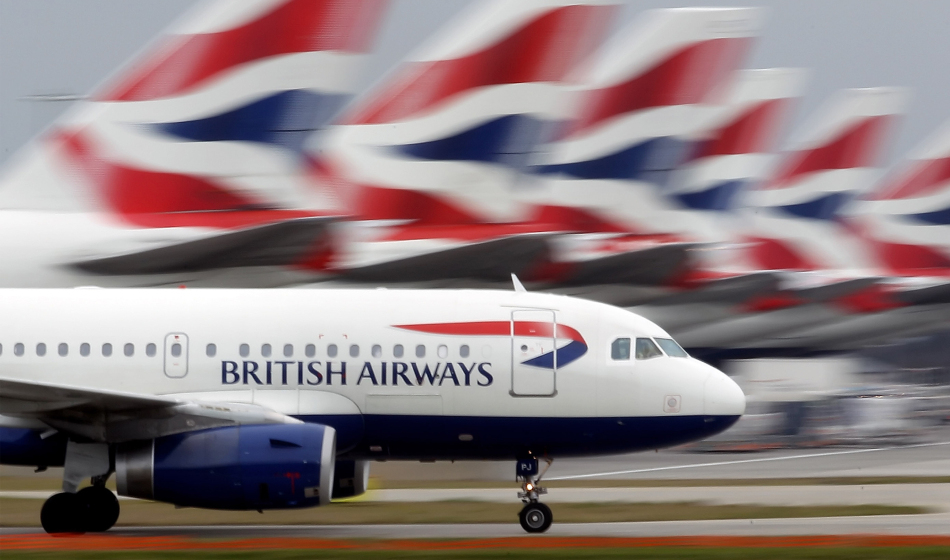by Clive Keyte.
What are your flight plans? Many industries have been hit hard by the global pandemic and its accompanying lockdown measures. In the UK, one of the biggest is the air transport industry, with holiday and business flights heavily impacted long before any official bans were imposed.
It looks like these restrictions are set to persist after the government’s Covid exit roadmap quashed any hopes of international air travel resuming before May this year. Furthermore, the likelihood of ongoing curbs – possibly in the form of Covid vaccination passports – are likely to have longer-term impacts on the operation of the air transport industry and our propensity to fly.
Flying in decline?
Some commentators have said that this enforced closure of Britain’s air transport industry will lead to long-term adjustments in supply and demand. Some say that holidaymakers will be less willing to travel abroad for holidays, and others believe that business flight demand will plummet, as industries hasten their migration towards digital ways of working; swapping flying for Zooming.
UK-based aviation services provider, IBA Group Ltd, has warned that aviation is far down the priority list for governments when it comes to reopening economies, saying that air traffic must be prepared for a long-haul back to any kind of normality. Others have posited that businesses will have become so used to operating on a remote, digitised basis that they will prefer to continue in this way. The air industry will begin to go into a slow decline, abandoned by business travellers who prefer to Zoom from home offices, and by nervous holidaymakers who prefer the safety of UK staycations.
Frankly, we don’t buy it!
Intrafocus flight plans
Naturally, at Intrafocus we are fascinated by any business topic that requires strategic-level consideration. And what could be more fundamental to the way that an international business works than its approach to travel?
The case for digital
Certainly, it is interesting to note that a large number of businesses have thrived without air transport. Many have seen huge reductions in their cost savings – and an accompanying saving in time. Without the expectation of face-to-face meetings, business people have no longer needed to spend their days waiting at airports and engaging in tiring, time-consuming and often unproductive air travel. After all, even a good business lounge can never be as productive as a home or business office, where the individual can truly focus on what they are doing rather than waiting for flight announcements.
It has been fascinating to see how we have somehow all managed to get around the issue of not meeting face-to-face. This would have seemed unimaginable before the Covid pandemic, where expectations around in-person meetings – and presenteeism at work – persisted. But thanks to online conferencing, messaging services, email and even the good old telephone, business people have largely found that they can still do most of their work quite effectively.
There is no doubt that digital meetings can save time, stress, money and waste. And these things are all vital to a successful business.
The case for being together
And yet…something lacks when we rely on screens. And at Intrafocus, we don’t mind holding up our hands and saying that we will be the first to board flights to see our international clients when we are allowed to, and can do so safely.
This isn’t because we need to work face-to-face to make sales, build client relationships, consolidate revenue streams or resolve problems. Most of that can be done quite effectively via digital means – especially after a year of practice.
But the fact remains that we want to be with people. Yes, our business strategy has evolved to factor in digital working methods during the pandemic. But we’ve retained our travel budget for better times ahead!
Far from being ‘unnecessary spend’, we believe that business travel is essential. Is there anything better than meeting a remote client face to face? Than shaking hands? Than enjoying a drink together as you actually make eye contact and begin to build rapport in a meaningful, human way.
People are social creatures by nature, and I suspect most of our meaningful, memorable encounters – be that in business or social contexts – occur when we are together. So we should be thinking about our future flight plans.
The value of aviation
Let’s also look at some of the broader economic reasons to support our aviation industries:
- Air transport (passenger and freight) may only contribute c. 0.3% of GDP, but it is a huge enabler of multiple other industries, and plays a huge role in connecting the world.
- It supports $3.5 trillion of global economic activity, supporting over 11 million direct jobs, and $816.4 billion of indirect economic activity.
- It is working hard to become more environmentally-friendly, with research into cleaner fuels, lighter aircraft, ‘greener’ airports and other sustainable innovations.
References: OECD Policy Responses to Coronavirus (COVID-19)
In conclusion
So what are your flight plans? Here’s to a Covid-safe return to flight, and the chance to meaningfully connect in person once again. Yes, we will continue to embrace digital technologies in myriad ways, but we will also be first in the queue for business flight tickets when we can gladly go and see our clients once again, and enjoy the huge and undeniable benefits of face-to-face business once more!




